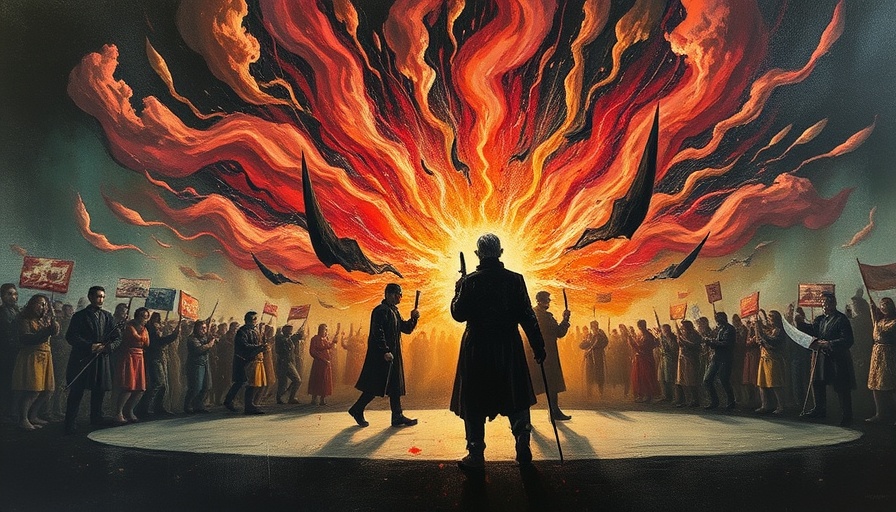
The Struggle for Artistic Freedom in Kenya
In a troubling incident that echoes through the annals of Kenyan political history, artistic expression confronted the iron fist of censorship during a recent national drama competition in Nakuru. The university drama group from Butere Girls High School made headlines when they abruptly refused to perform their play, Echoes of War, after facing harassment from law enforcement. This incident not only highlights the precarious position of artists under authoritarian scrutiny but also serves as a stark reminder of the lingering issues of governance and freedom of expression in Kenya.
A Play That Strikes a Chord of Dissent
Echoes of War centers on generational conflict within a fictional Middle Eastern state, capturing the disillusionment of youth with their leaders. The narrative's potency resonates with recent events in Kenya, particularly the youth-led protests against rising taxes that transpired last year. The theme of discontent reflects the universal struggle for representation and accountability in governance, making its message both timely and poignant.
Police Disruption: A Serious Concern for Freedom of Expression
The disruption of the performance escalated into chaotic scenes; reports of police deploying tear gas on attendees and arresting the play's scriptwriter highlighted a growing trend of silencing critical voices. This aggressive stance by authorities raises significant concerns about the rights enshrined in Article 33 of the Constitution of Kenya, which protects freedom of expression. The murky dynamics surrounding the event suggest a government grappling with dissent, which poses a direct threat to the very fabric of democratic principles.
Societal Impact: The Broader Implications of Censorship
Critical voices, like that of the Kenya National Commission on Human Rights (KNCHR), have spoken out against the police's actions. Their condemnation not only emphasizes the potential dangers of censorship but also suggests that such measures could stifle essential artistic dialogues that reflect societal issues. The implications extend beyond the immediate controversy, signaling to the global community a disturbing trend towards authoritarianism in governance.
A Call for a Unified Front Against Censorship
The fate of the Butere High students and their artistic expression raises urgent questions about the role of art in society. As stakeholders in business, policy, and academia, we must advocate for an environment where creativity can flourish unhampered by oppressive restraints. Engaging in dialogue around prescribed freedoms is not merely a matter of artistic license; it's integral to fostering a more open, engaged society. Now is the time for all involved—be it artists, policymakers, or citizens—to unite against the tide of censorship.
By addressing these crucial issues and standing against oppression, we can collectively shape a future where Africa's voices are heard, respected, and celebrated on the global stage. The need for action is clear; we must mobilize our resources and voices to protect the rich tapestry of cultural expression that weaves through our societies.
 Add Row
Add Row  Add
Add 


 Add Row
Add Row  Add
Add 

Write A Comment